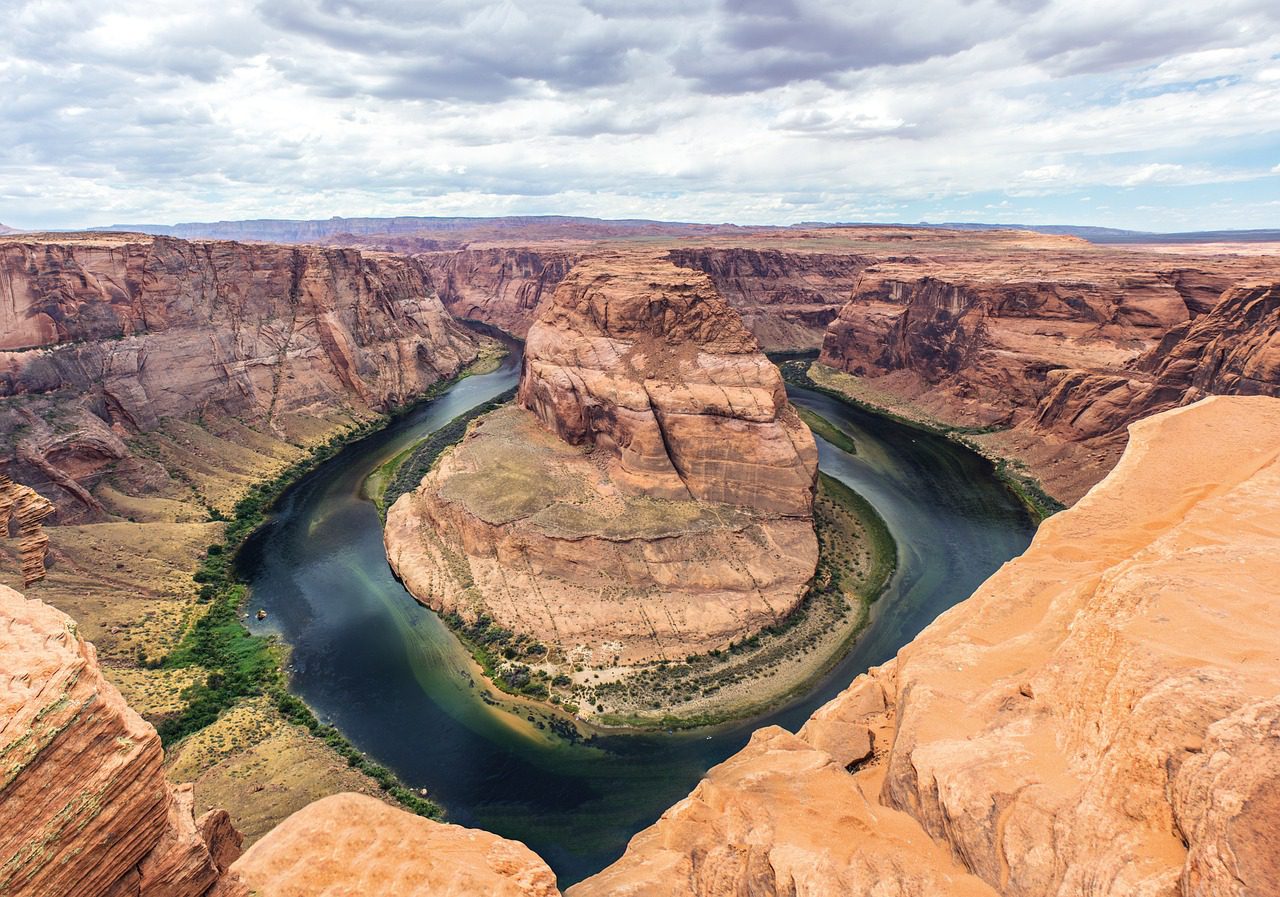August 1, 2023 — The Colorado River Basin, a crucial source of water for over 40 million people in the southwestern US, has been grappling with an intense drought since 2000. According to research published by PHYS.org , this drought, called a megadrought due to its decades-long span, has been so severe it is considered unlikely to have happened without the influence of human-induced climate change. During 2020 and 2021, the basin experienced its driest period in over a century, reducing the river’s flow to record low levels.
, this drought, called a megadrought due to its decades-long span, has been so severe it is considered unlikely to have happened without the influence of human-induced climate change. During 2020 and 2021, the basin experienced its driest period in over a century, reducing the river’s flow to record low levels.
As reported by PHYS.org , a study by Dr. Benjamin Bass and his team at the University of California revealed some startling facts. Over the last 140 years, the river basin’s runoff – the amount of rainfall not absorbed by the soil and therefore flowing into the river – has decreased by over 10%. This reduction, attributed to climate change and changes in vegetation, has resulted in a substantial decline in available water for local communities.
, a study by Dr. Benjamin Bass and his team at the University of California revealed some startling facts. Over the last 140 years, the river basin’s runoff – the amount of rainfall not absorbed by the soil and therefore flowing into the river – has decreased by over 10%. This reduction, attributed to climate change and changes in vegetation, has resulted in a substantial decline in available water for local communities.
One of the significant findings was the severe impact on areas covered in snow, which make up about 30% of the Colorado River Basin. These regions have been hit by drying conditions, resulting in an alarming decrease in runoff. As the snow diminishes, it leaves behind darker land that absorbs more heat, increasing temperatures and leading to even more snow melting. This cycle continues in a vicious loop.
To understand the impact of climate change on runoff, the researchers used climate models and historical data. They found that the decrease in runoff since the mid-20th century was largely due to global warming and increased CO2 levels. In fact, they argue, runoff would have increased if these factors were absent.
Plants also play a role in this situation. Higher CO2 levels cause plants to lose less water, but warmer temperatures cause more evaporation from their leaves. The net effect is that the plants end up losing more water overall, even though they do help offset some of the runoff loss.
The megadrought of the last 22 years has been marked by higher temperatures and less rainfall than the average, with a recent spike in temperature and a drop in precipitation and runoff. This has led to an alarming decrease in the total runoff since 2000, which is larger than the size of Lake Mead in Nevada, the US’s largest reservoir. States like Arizona and Nevada, along with Mexico, were even declared to have a water shortage in 2021, leading to cuts in their water allocations.
In a nutshell, the Colorado River Basin has lost nearly 10% of its annual runoff volume in the last 140 years. This situation is expected to worsen as CO2 levels and temperatures continue to rise, posing a serious threat to the millions who rely on its water daily.
The Problem of Over-Allocation.
CBS News’ 60 Minutes program sounded the alarm about the long-term problem of reduced Colorado River water flow and over-allocation in its July 30 broadcast:


Leave a Reply